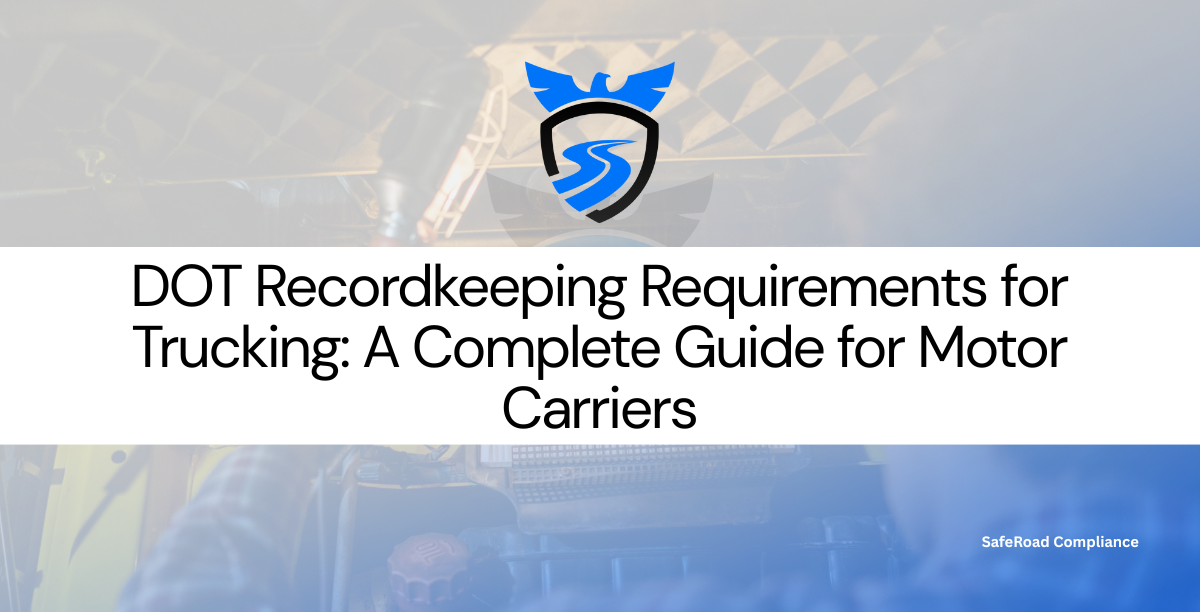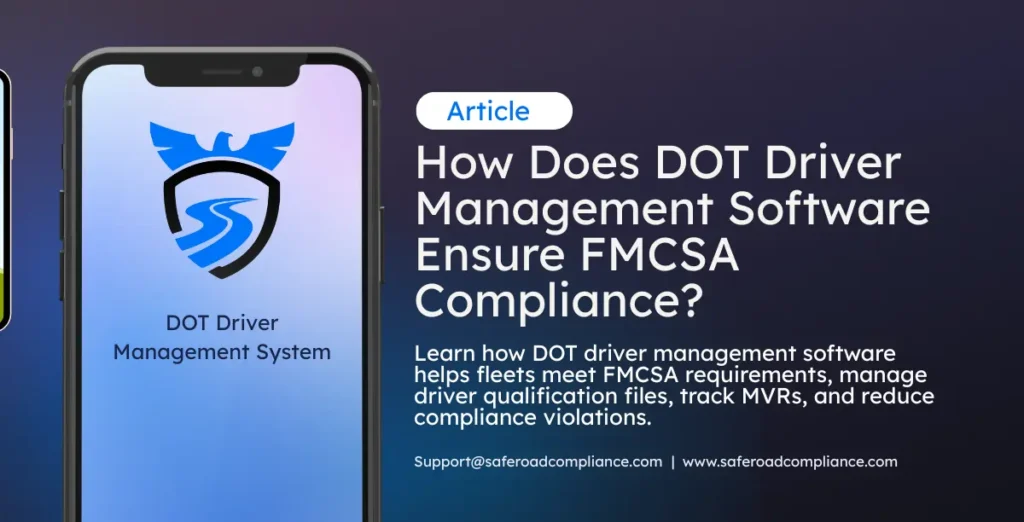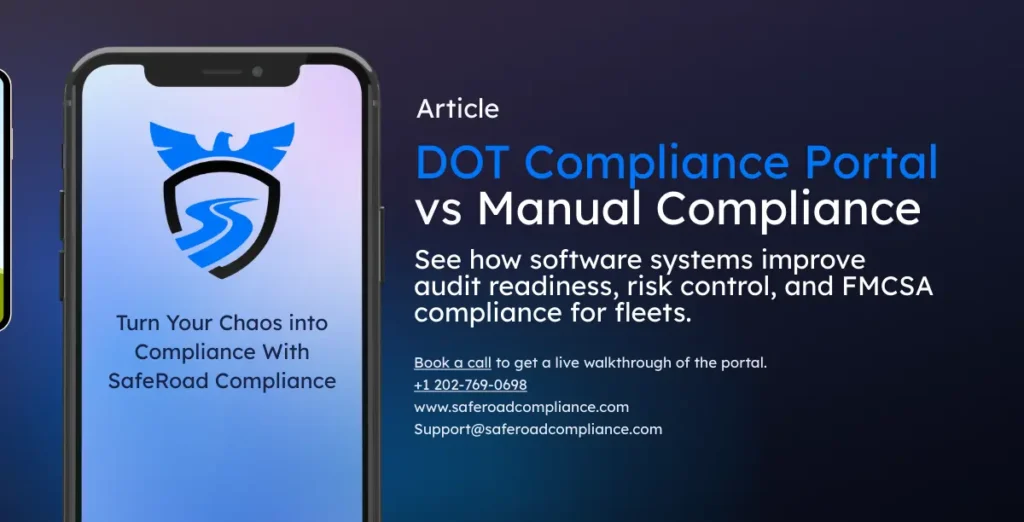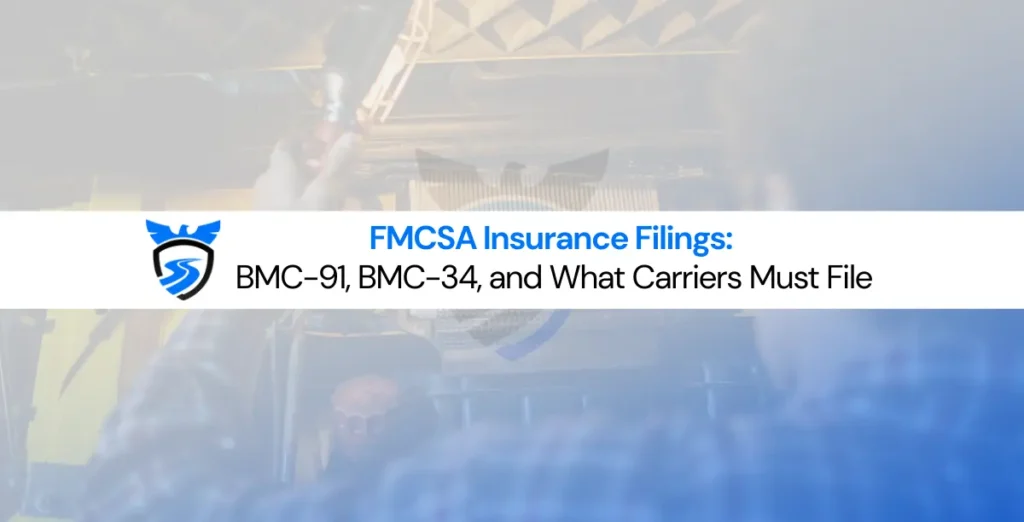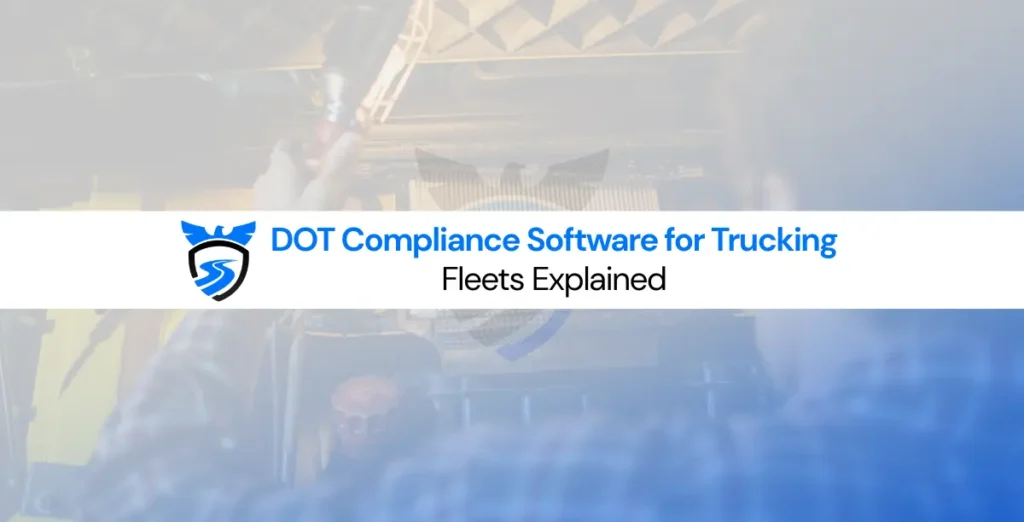Introduction: Why DOT Recordkeeping Matters
Recordkeeping is one of the most important responsibilities for any motor carrier. The Federal Motor Carrier Safety Administration (FMCSA) and the Department of Transportation (DOT) require fleets to maintain organized, accurate, and accessible records to prove compliance with federal safety regulations.
These records not only protect companies from fines and penalties but also demonstrate a strong commitment to operational safety and accountability. When an auditor or inspector reviews a carrier’s files, the organization and accuracy of those records often determine whether the company passes with confidence or faces costly violations.
For carriers of all sizes, from large fleets to independent owner-operators, understanding DOT recordkeeping requirements is critical for staying compliant and audit-ready.
Driver Qualification (DQ) File Requirements
The Driver Qualification (DQ) file is one of the most critical components of DOT recordkeeping. Every driver who operates a commercial motor vehicle must have a complete and up-to-date DQ file. This file essentially acts as proof that a driver is legally qualified and physically fit to operate under DOT and FMCSA standards.
The DQ file contains multiple required documents such as the driver’s employment application, three years of Motor Vehicle Records (MVRs) from each state of licensing, a copy of the Commercial Driver’s License (CDL), medical examiner’s certificate, and records of road tests or training certifications.
Employers must also keep safety performance history records from previous employers to verify that the driver has no disqualifying violations. Retention is equally important: while most DQ file records must be kept for the entire period of employment plus three years afterward, certain items such as annual MVR reviews must be retained for at least three years.
Maintaining DQ files carefully ensures that carriers can prove their drivers are qualified, properly trained, and medically cleared to drive.
Hours of Service (HOS) & ELD Recordkeeping
Managing Hours of Service (HOS) is a central part of DOT compliance because it directly impacts driver fatigue and road safety. Since the implementation of Electronic Logging Devices (ELDs), motor carriers must electronically track driving hours, rest periods, and duty statuses for all covered drivers.
However, maintaining ELD data alone is not enough. Carriers must also keep supporting documentation such as fuel receipts, bills of lading, dispatch records, and any exemptions or special duty status notations. These records collectively demonstrate that drivers are not exceeding the maximum driving hours or neglecting required rest breaks.
All HOS and ELD records must be retained for at least six months, while backups should be stored securely to prevent data loss. For fleets, ensuring these logs are accurate and consistent is vital during audits, as HOS violations are among the most common compliance issues that inspectors flag. By keeping HOS records organized, carriers not only avoid penalties but also protect their drivers and the public from fatigue-related risks.
Vehicle Inspection & Maintenance Records
Vehicle safety is a cornerstone of DOT compliance, and maintaining detailed inspection and maintenance records proves that fleets are taking their safety obligations seriously. Carriers are required to document all pre-trip and post-trip inspections through Driver Vehicle Inspection Reports (DVIRs). These reports highlight any defects identified by drivers and ensure that necessary repairs are made before a vehicle returns to service.
Beyond DVIRs, carriers must also retain preventive maintenance schedules, repair receipts, and detailed service logs that verify vehicles are consistently maintained according to FMCSA standards. Retention timelines are strict: DVIRs must be kept for at least 90 days, while maintenance records must be preserved for one year while the vehicle is in operation and for six months after it leaves the fleet.
Organized inspection records help carriers quickly resolve safety issues, minimize roadside breakdowns, and demonstrate to auditors that their vehicles are roadworthy. A strong maintenance recordkeeping system ultimately reduces liability risks and extends the lifespan of fleet assets.
Drug & Alcohol Testing Records (ODAPC Requirements)
DOT’s Office of Drug and Alcohol Policy & Compliance (ODAPC) sets strict guidelines for testing programs under 49 CFR Part 40, making drug and alcohol records some of the most heavily regulated. Carriers must maintain documentation for all types of testing, including pre-employment, random, reasonable suspicion, post-accident, return-to-duty, and follow-up tests.
These records must be kept secure and separate from personnel files to protect confidentiality. Employers are also required to keep proof of supervisor training for recognizing impairment, employee acknowledgments of company policies, and all reporting submissions to the FMCSA Clearinghouse. Retention requirements vary: positive test results, refusal documentation, and Substance Abuse Professional (SAP) reports must be kept for five years, while negative and canceled test results need only be stored for one year.
Certain administrative and policy records fall under a two-year retention period. Because drug and alcohol violations can severely damage a company’s safety rating and reputation, carriers must treat this area of recordkeeping with the highest level of attention and security.
Record Retention Periods at a Glance
Understanding the required retention timelines is essential to avoid costly mistakes. Below is a quick breakdown of key DOT recordkeeping requirements:
- Driver Qualification Files: Must be kept for the duration of employment plus three years after the driver leaves.
- Annual MVR Reviews and driver lists: Retain for three years.
- HOS/ELD Logs and supporting documents: Retain for six months.
- DVIRs: Keep for 90 days.
- Vehicle Maintenance Records: Keep for one year while in service and for six months after the vehicle is retired or sold.
- Drug & Alcohol Testing: Positive results, refusals, and SAP evaluations must be retained for five years, while negative results must be kept for at least one year.
Having a clear understanding of these retention requirements allows carriers to implement effective filing systems that ensure no records are discarded too soon or stored beyond what is necessary.
Best Practices for DOT Recordkeeping
While compliance rules are clear, staying organized is often where many carriers fall short. To simplify DOT recordkeeping, fleets should implement a centralized record management system, ideally digital, to reduce the risk of lost or damaged files. Conducting quarterly internal audits ensures that files are accurate, complete, and aligned with FMCSA regulations.
Employee training is also key, drivers and administrative staff must understand what documents are required and how they should be submitted or stored. Importantly, drug and alcohol testing records must be stored securely and kept separate from driver qualification or personnel files.
In addition, carriers should ensure that all records are easily retrievable in the event of a DOT audit or roadside inspection. Proactive organization not only helps companies avoid penalties but also saves time and stress when inspectors arrive. By treating recordkeeping as a core part of safety management, carriers create a culture of compliance that supports both business operations and road safety.
Why Staying Audit-Ready Matters
DOT audits are often unannounced, and the outcome largely depends on the quality of a carrier’s records. Missing documents, incomplete files, or disorganized recordkeeping can quickly escalate into fines, downgraded safety ratings, or even suspension of operating authority.
On the other hand, being prepared with well-maintained, accessible files allows carriers to pass audits smoothly and demonstrate professionalism to regulators. Beyond regulatory benefits, strong recordkeeping also enhances operational efficiency by giving companies a clear picture of driver qualifications, vehicle maintenance schedules, and compliance gaps. In today’s competitive transportation industry, audit-readiness is not just about avoiding penalties, it’s about protecting your company’s reputation, reducing legal risk, and gaining a competitive edge as a reliable, safety-first carrier.
Conclusion: Stay Compliant, Stay Safe
DOT recordkeeping may seem like a mountain of paperwork, but it is the backbone of compliance and safety in the trucking industry. By maintaining organized files, following retention timelines, and adopting best practices, carriers can avoid costly violations while ensuring their operations remain efficient and safe.
Whether you manage a large fleet or operate as an independent driver, compliance with DOT recordkeeping rules demonstrates your professionalism and commitment to safety. With the right systems in place, you can remain audit-ready at all times and focus on growing your business with confidence.
📌 Need help setting up or managing your DOT recordkeeping system?
Contact SafeRoad Compliance today and let our experts keep your fleet compliant, organized, and audit-ready.
FAQs on DOT Recordkeeping
Carriers must retain HOS logs, ELD data, and supporting documents for at least six months.
Carriers must retain HOS logs, ELD data, and supporting documents for at least six months.
Yes, negative drug and alcohol test results must be kept for at least one year, while positive and refusal records must be kept for five years.
Yes, DOT allows electronic recordkeeping provided files are accurate, secure, and easily accessible during audits.
Missing records can lead to violations, fines, downgraded safety ratings, and even operational shutdowns depending on severity.
Yes, even single-driver operations are required to maintain proper DOT records to remain compliant with FMCSA regulations.
